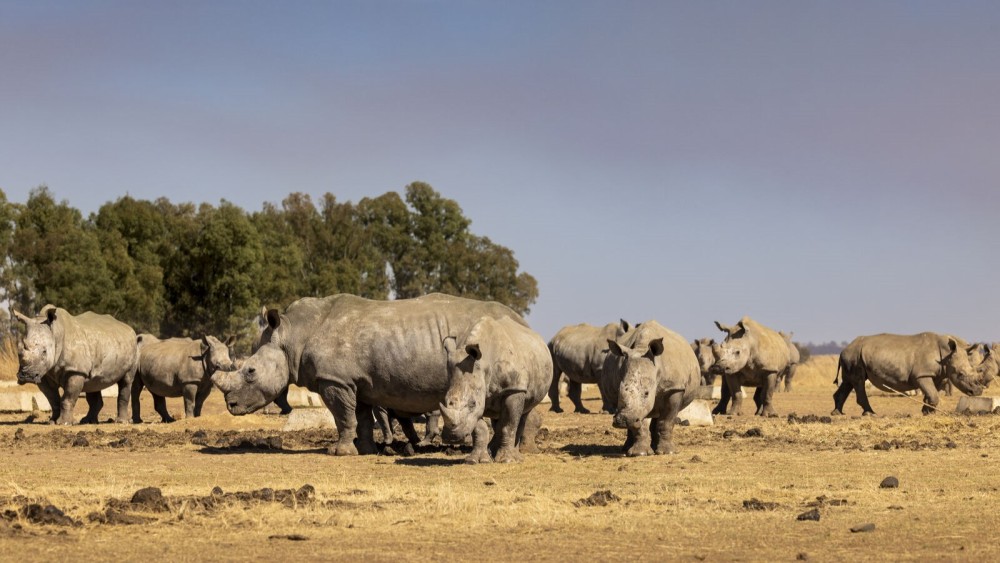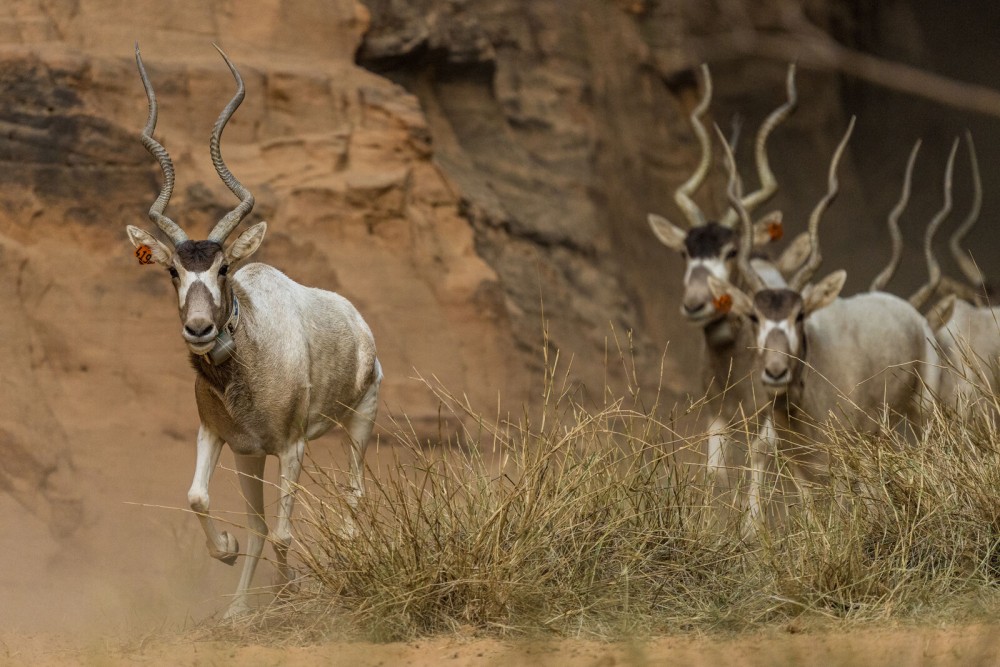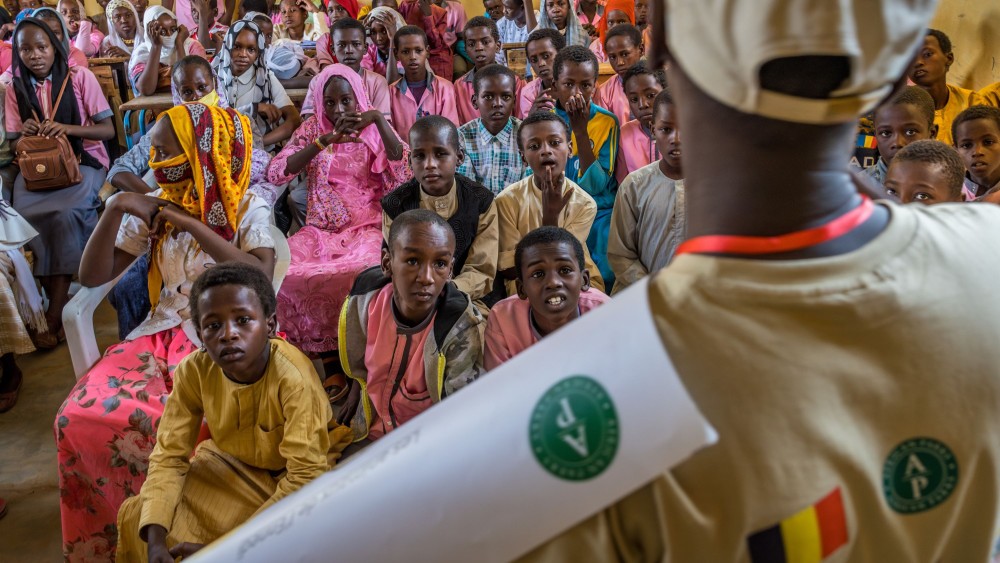2023 was an incredibly busy year as we consolidated our operations across 22 parks and focused on improving our systems and capacity in preparation for biodiversity conservation at scale.
As we reflect on what African Parks achieved in 2023, it’s clear that we have made significant progress but, also, that there is a lot of work still to be done. According to the WWF’s Living Planet Report for 2022, species populations have declined by 69% since 1970. While the report highlights that conservation efforts are making an impact, urgent action is still needed if we are to reverse nature loss. Here is a snapshot of what African Parks achieved in 2023 to play its part in safeguarding biodiversity:
Major Developments and Milestones
This year we celebrated the 20-year anniversary of park management in Majete Wildlife Reserve in Malawi. Over the years, thanks to the continued support of the Malawian Government, our neighbouring communities and our donors, we’ve seen Majete thrive and develop into a haven for wildlife and a stronghold for community development. To celebrate the occasion, we joined over 200 staff and friends of the reserve from the past and present at Majete to reminisce and pay tribute to what has been achieved.
Possibly one of our biggest undertakings to date was the purchase of “Platinum Rhino” in South Africa in September – the world’s largest captive rhino breeding operation – and becoming the custodians of 2,000 southern white rhino. Our decision to buy the farm was made with one clear intention: to rewild the animals over the next decade to safe protected areas across the continent. Still in the start-up phase, most of our time and efforts so far have been dedicated to understanding the operation, putting systems in place that align with our Standard Operating Procedures and dedicating time to the much-needed maintenance and upkeep of infrastructure, vehicles and staff. There is still a long way to go in ensuring we have all the necessary financial resources in place to carry out our full vision but we remain extremely positive and excited about the journey ahead.

We took another step closer to reaching our goal of a further 10 million hectares of landscape under management by 2030 when we welcomed the Forgotten Parks Foundation, which manages Upemba National Park in south-east Democratic Republic of Congo, to the African Parks incubator programme. This programme supports smaller NGOs that share our ambition of managing protected areas through long-term collaborative management agreements.
In Other News
Park revenue generation across the portfolio was positive this year, with us being on track to achieve US$12 million in gross revenue this year. This marks a 50% increase from 2022. Some financial highlights include Akagera National Park in Rwanda being on target to become the first park under management to reach 100% financial sustainability. And Nyungwe National Park looks set to double what it brought in during 2022. Kafue National Park in Zambia exceeded its financial targets in its first year under management. This revenue flows directly back into the management of the park for further investment into conservation and community development – stimulating a conservation-led economy.
The work we do is complex and difficult, and as a result, the year was not without its challenges. We acknowledge those rangers who lost their lives while working to protect biodiversity, and we continue to work with our Government partners and communities to mitigate incidents with tragic outcomes.
Rewilding and Translocation Efforts

A number of successful wildlife translocations and surveys took place this year, thanks to the support from teams on the ground, funders and Government partners.
- In March and April, we conducted our first-ever mass wildlife collaring in Boma and Badingilo national parks in South Sudan. A total of 126 animals from various species were collared, including antelope, predators and elephant.
- In June, we successfully moved 16 southern white rhino from Phinda Private Game Reserve in South Africa to Garamba National Park in the Democratic Republic of Congo (DRC).
- In July, Iona National Park in Angola received 14 Angolan giraffe, translocated from Namibia in partnership with the Angolan Government and Giraffe Conservation Foundation (GCF). Sadly, three of the giraffe died due to natural causes, but the survival of the remaining animals has highlighted their resilience to adapt and begin establishing a viable giraffe population in the park.
- In November, ten addax antelope were reintroduced to Chad’s Ennedi Natural and Cultural Reserve from Abu Dhabi.
- In December, we moved five black rhino to Chad, from South Africa to Zakouma National Park in collaboration with the Chadian Government.
- Finally, in December, we released the seven young lions rescued last year in Kafue National Park after their mothers were caught in snares and killed. The youngsters were released into the park with an adult female who had been introduced to them months prior for bonding and to teach the juveniles to hunt for themselves.
Upskilling, Empowering and Supporting Communities

Across the portfolio over 24,000 community members visited the parks in 2023, including 21,572 children, to help improve their knowledge and awareness of the importance of biodiversity conservation. A total of 370 school wildlife clubs now exist with almost 10,000 children participating. Six new schools were built, bringing the total to 79 African Parks-built schools, with 1,129 scholarships being provided in the year.
The community team in Ennedi, Chad, found an innovative solution to reaching children in the vast desert region by developing a fun mobile environmental education truck, "Les Petits Mouflons". With so few schools available around the reserve, children now have access to education even in the most remote villages. The response has been tremendous with local authorities and community members encouraging the initiative to continue.
One of our highlights of the year was the annual Wildlife Ranger Challenge in September. Teams gathered from all the parks, including from Head Office and abroad, to raise awareness for the role rangers play in conservation by running a 21 km half-marathon.
With Gratitude
With the increasing urgency to protect nature and the spotlight on conservation in Africa intensifying, our commitment to tangible results is as strong as ever. The work done in 2023 required a team effort, and we are grateful for the incredible support of our Government partners, our neighbouring communities, our donors, the entire African Parks team and your ongoing support.
Your Support Goes a Long Way
At African Parks we are working everyday to protect Africa's last wild landscapes. By donating to us, you are making a difference and are giving hope to people and wildlife across the continent.
Donate